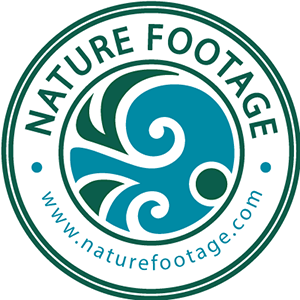VIDEO LIBRARY
Captivating Films Revealing the Magic of Our Ocean
VIDEO LIBRARY
Captivating Films Revealing the Magic of Our Ocean
Video Library
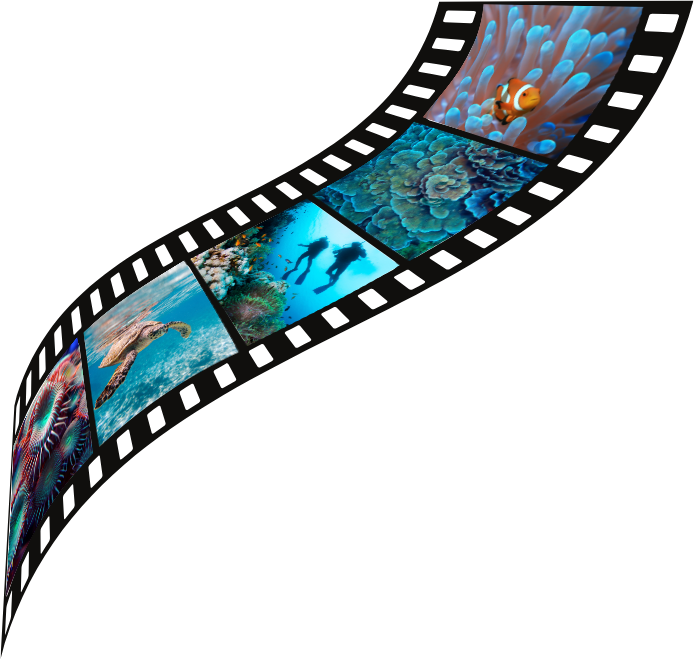
Captivating Educational & Documentary Films
Welcome to the Khaled bin Sultan Living Oceans Foundation’s Video Library. Here, you can immerse yourself in a collection of captivating educational and documentary films that reveal the magic of our ocean, the intricate beauty of coral reefs, and the wonders of marine science. These films can transport viewers to places they may never otherwise see, make complicated science easy to understand, and connect people in a visceral and emotional way to the incredible beauty of our oceans.

Educational Videos
Short Videos Designed to Teach
Dive into our series of short educational videos that accompany our Coral Reef Ecology Curriculum. These videos are crafted to make complex marine science concepts accessible and engaging for students and teachers. They transport viewers to underwater worlds, reveal fascinating ecosystems, and foster a deeper understanding of our connection to the ocean.
Documentary Films
Playlist
46:00

26:14
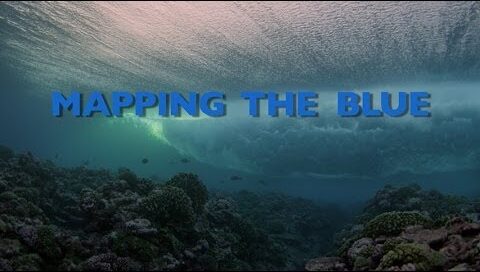
29:01

1:28
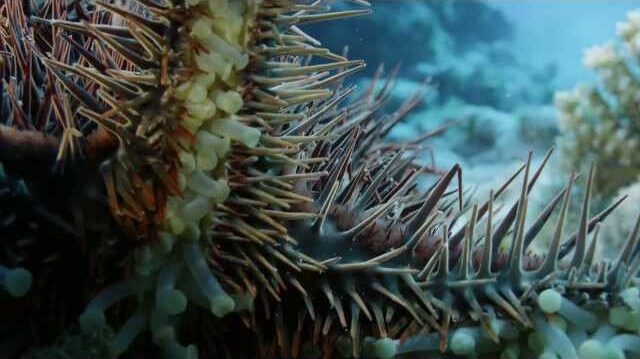
6:05
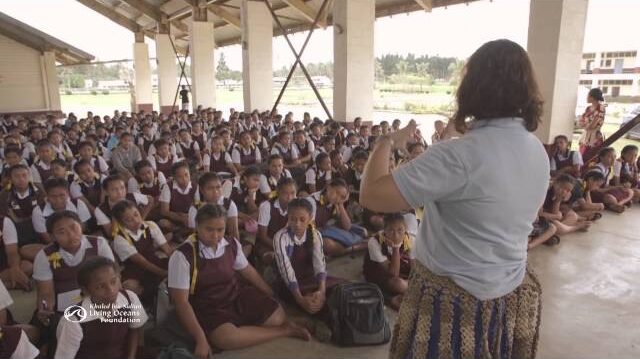
4:55
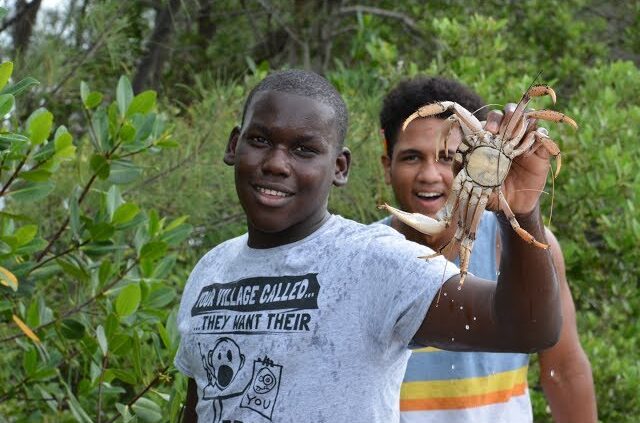
9:49
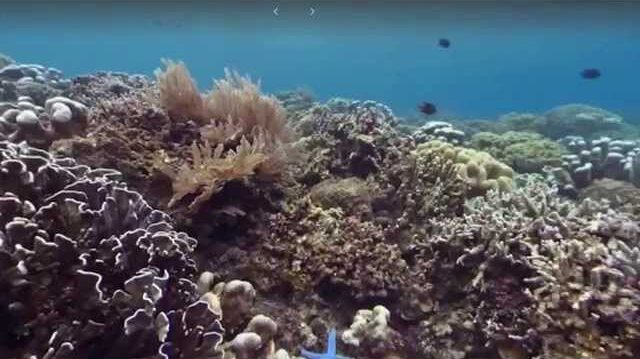
9:26
An Ocean Mystery: The Missing Catch
Watch An Ocean Mystery: The Missing Catch from Living Oceans Foundation on Vimeo.
Around the world millions of people depend on fish, but what if we’re running out? As government and industry regulators track the quantity of fish we catch, and claim the oceans can handle the huge catches, fish numbers keep dropping.
World-renowned fisheries expert, Dr. Daniel Pauly, suspects that we are dangerously overfishing the world’s fish supply. He believes that bad data masks how close we are to running out of fish, to prove it he and his team have conducted the most ambitious fishing investigation the world has ever seen.
How much fish have we caught?
His goal – to find out once and for all how much fish we have removed from the ocean since industrial fishing began. This requires calculating the amount of fish caught through illegal, unreported and unregulated fisheries (together these are labeled as IUU fisheries). Fish caught in one of these ways is usually overlooked and they are virtually never counted.
“We need to know how many fish have been taken from the ocean in order to figure out what we can catch in the future.” – Dr. Daniel Pauly
Big data
It’s a big-data problem on a massive scale, and it has taken about fifteen years to calculate the true fish catch for each country in the world.
However, there is some hope that we could get accurate fishing data in real-time. A pilot study underway in Honduras may make it possible to collect this kind of data as we go, and would allow even the most remote fishermen to send information about how much fish they catch, to their national government.
Discover a large ocean data project on the state of the world’s reefs by exploring the Global Reef Expedition.
Solutions
The hope is that the new research included in this film will be incorporated into national catch estimates in every country so that fisheries managers can manage their resource sustainably for the future. Known for his work on shifting baselines and small-scale fisheries, this film will discover if Dr. Pauly’s Sea Around Us Project could lead to the greatest shake-up ever of world fisheries.
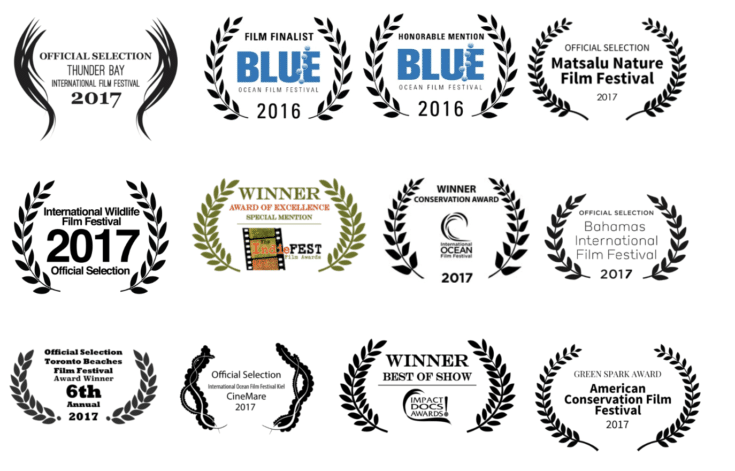
Coral Reefs: Trouble in Paradise
Coral Reefs: Trouble in Paradise tells the story of an international scientific team in the Chagos Archipelago, a tropical paradise in the British Indian Ocean Territory with some of the healthiest coral reefs on the planet. Initially, the scientists are thrilled with the beauty and abundance of the reefs, which support many thousands of fish and other sea creatures. But in the space of a few weeks they become surprised witnesses to a serious case of bleaching in the reefs — evidence that even the most isolated places are not safe from the ravages of climate change. Their study of these reefs, however, does give some reason for hope, and leaves the scientists with a clear sense of what may be necessary to save the world’s coral reefs.
Awards
- Finalist, Marine Science, Blue Ocean Film Festival, 2016
- Finalist, Education and Non-Broadcast, Blue Ocean Film Festival, 2016
- Silver Davey Award, Not-for-Profit Film, 2016

Mapping the Blue
In 2012, the Cook Islands announced a Mega Marine Park, what was, at the time, the biggest marine park on Earth. This is one of the most awesome places on the planet, and local people, traditional leaders, and the fishermen of the magnificent Cook Islands are determined that it should remain so.
In stunning high definition, Mapping the Blue tells the story of how Rugby League star, Kevin Iro, turned conservationist and founded the world’s largest sanctuary where he used to play as a boy. By using high tech GIS mapping, Iro and his team are able to show the best uses for areas within this pristine ocean park, which is good for conservation and the needs of local people.
This film is a must-see for all those interested in the health of our oceans… from marine biologists to recreational scuba divers. It points to a model of how such precious areas can be preserved all over the world and provides hope for the future.
Awards
- Grand Remi Award, WorldFest International Film Festival, Best Film & Video, 2015
- Winner, Conservation Innovation and Solutions, Blue Ocean Film Festival, 2014
- Finalist, Marine Sciences, Blue Ocean Film Festival, 2014
- Winner, Davey Award, 2014
- Selected for Screening at American Conservation Film Festival, 2014
- Selected for Screening at Waimea Ocean Film Festival, 2016
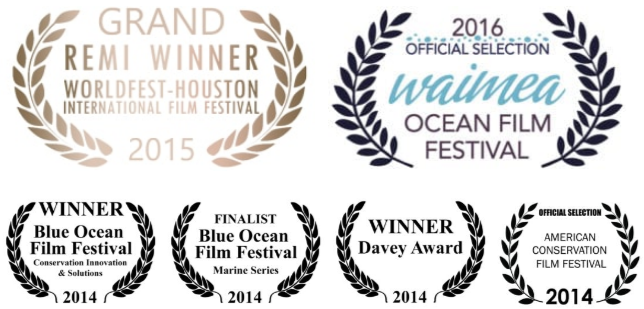
Sharks of the Coral Canyon
Sharks of the Coral Canyon tells the story of how sharks and coral reefs are intricately linked. It follows one of the largest marine science studies in history as researchers work to uncover the inner workings of pristine coral reefs, including the predators. The film tracks scientists as they venture into ferocious ocean currents to reveal first time ever footage of sharks hunting at night, as well as brand new shark hunting behavior. The film witnesses a rare natural spectacle involving thousands of large fish trying to lay their eggs and simultaneously survive a shark onslaught. The film uncovers how two of the most threatened groups of animals in the ocean, corals and sharks, depend on one another, and must be protected together if either of them is to survive into the future.
The film is now airing under the title Mysteries of the Coral Canyon on PBS, check your local station for listings.
Awards
- Winner, Suncoast Emmy® Award, Best Environment-Program, 2015
- Finalist, Best Exploration and Adventure, Blue Ocean Film Festival, 2014
- Finalist, Best Marine Life Film, Blue Ocean Film Festival, 2014
- Winner, Davey Award, 2014
- Selected for Screening at Wildlife Conservation Film Festival, New York 2014
- Winner REMI, Worldfest, Houston, 2014
- Screened at Blue Bahr film festival in Beirut, Oct 2015
Sharks of the Coral Canyon Hangout
Want to learn more about Sharks? Watch our Google Hangout, Shark Byte! The feeding strategies of reef sharks, featuring shark scientist Dr. William Robbins, the star of Sharks of the Coral Canyon.
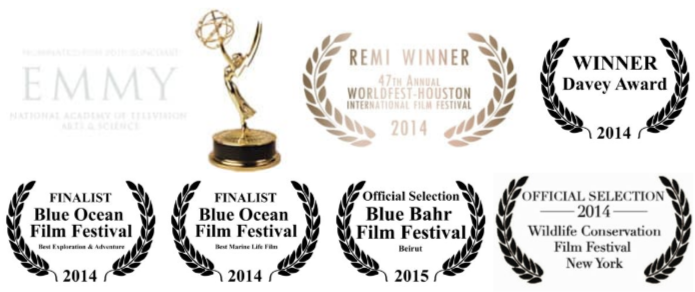
Crown of Thorns Starfish (COTS) Crisis
They may look like just another starfish, but crown-of-thorns starfish (COTS) are one of the biggest threats to coral reefs in the Pacific and Indian Oceans. Armed with venomous spines and dozens of arms, a single COTS can devour its own body area in coral every night. During outbreaks, thousands sweep across reefs, leaving behind lifeless, gray graveyards.
Why are their populations exploding? Overfishing of natural predators, nutrient runoff, and changes in ocean conditions all play a role. But there’s hope—healthy ecosystems, clean water, and active management can help coral reefs recover.
Join the Khaled bin Sultan Living Oceans Foundation on the frontlines of a COTS outbreak, and see what scientists are doing to give reefs a fighting chance.
Reefs on the Road: Tonga
Join Amy Heemsoth, Education Director at the Khaled bin Sultan Living Oceans Foundation, as she travels to Tonga to bring coral reef science into local classrooms. With little more than a generator, projector, and a passion for teaching, Amy visited 18 schools across the islands—helping students understand why reefs matter, how they’re threatened, and what they can do to protect them.
For communities that rely on coral reefs for food and livelihoods, this knowledge is critical. By connecting science with education, the Foundation is empowering the next generation of ocean stewards.
Inside the Mangrove Classroom
Mangroves are in peril all over the world. It’s estimated that almost half of the mangroves have disappeared, primarily due to human destruction. To combat this, the Khaled bin Sultan Living Oceans Foundation has created Mangrove Education & Restoration programs to increase environmental awareness and restore mangrove forests. Currently, the programs are implemented in high school classrooms in The Bahamas and Jamaica.
360° Solomon
This film tells the story of a team of scientists as they set sail on the world’s largest coral reef expedition to find out what’s happening to the world’s coral reefs. Using a custom camera system, they take stunning 360-degree imagery of the reefs of Marovo Lagoon in the Solomon Islands—the largest saltwater lagoon on the planet—gathering ground-breaking images to reveal the reefs as never seen before. It’s all part of an ongoing research project to measure coral reef habitat health and diversity across the tropics and understand how reefs are changing due to human pressures.
Playlist
46:00

26:14

29:01

1:28

6:05

4:55

9:49

9:26
An Ocean Mystery: The Missing Catch
Watch An Ocean Mystery: The Missing Catch from Living Oceans Foundation on Vimeo.
Around the world millions of people depend on fish, but what if we’re running out? As government and industry regulators track the quantity of fish we catch, and claim the oceans can handle the huge catches, fish numbers keep dropping.
World-renowned fisheries expert, Dr. Daniel Pauly, suspects that we are dangerously overfishing the world’s fish supply. He believes that bad data masks how close we are to running out of fish, to prove it he and his team have conducted the most ambitious fishing investigation the world has ever seen.
How much fish have we caught?
His goal – to find out once and for all how much fish we have removed from the ocean since industrial fishing began. This requires calculating the amount of fish caught through illegal, unreported and unregulated fisheries (together these are labeled as IUU fisheries). Fish caught in one of these ways is usually overlooked and they are virtually never counted.
“We need to know how many fish have been taken from the ocean in order to figure out what we can catch in the future.” – Dr. Daniel Pauly
Big data
It’s a big-data problem on a massive scale, and it has taken about fifteen years to calculate the true fish catch for each country in the world.
However, there is some hope that we could get accurate fishing data in real-time. A pilot study underway in Honduras may make it possible to collect this kind of data as we go, and would allow even the most remote fishermen to send information about how much fish they catch, to their national government.
Discover a large ocean data project on the state of the world’s reefs by exploring the Global Reef Expedition.
Solutions
The hope is that the new research included in this film will be incorporated into national catch estimates in every country so that fisheries managers can manage their resource sustainably for the future. Known for his work on shifting baselines and small-scale fisheries, this film will discover if Dr. Pauly’s Sea Around Us Project could lead to the greatest shake-up ever of world fisheries.
Coral Reefs: Trouble in Paradise
Coral Reefs: Trouble in Paradise tells the story of an international scientific team in the Chagos Archipelago, a tropical paradise in the British Indian Ocean Territory with some of the healthiest coral reefs on the planet. Initially, the scientists are thrilled with the beauty and abundance of the reefs, which support many thousands of fish and other sea creatures. But in the space of a few weeks they become surprised witnesses to a serious case of bleaching in the reefs — evidence that even the most isolated places are not safe from the ravages of climate change. Their study of these reefs, however, does give some reason for hope, and leaves the scientists with a clear sense of what may be necessary to save the world’s coral reefs.
Awards
- Finalist, Marine Science, Blue Ocean Film Festival, 2016
- Finalist, Education and Non-Broadcast, Blue Ocean Film Festival, 2016
- Silver Davey Award, Not-for-Profit Film, 2016
Mapping the Blue
In 2012, the Cook Islands announced a Mega Marine Park, what was, at the time, the biggest marine park on Earth. This is one of the most awesome places on the planet, and local people, traditional leaders, and the fishermen of the magnificent Cook Islands are determined that it should remain so.
In stunning high definition, Mapping the Blue tells the story of how Rugby League star, Kevin Iro, turned conservationist and founded the world’s largest sanctuary where he used to play as a boy. By using high tech GIS mapping, Iro and his team are able to show the best uses for areas within this pristine ocean park, which is good for conservation and the needs of local people.
This film is a must-see for all those interested in the health of our oceans… from marine biologists to recreational scuba divers. It points to a model of how such precious areas can be preserved all over the world and provides hope for the future.
Awards
- Grand Remi Award, WorldFest International Film Festival, Best Film & Video, 2015
- Winner, Conservation Innovation and Solutions, Blue Ocean Film Festival, 2014
- Finalist, Marine Sciences, Blue Ocean Film Festival, 2014
- Winner, Davey Award, 2014
- Selected for Screening at American Conservation Film Festival, 2014
- Selected for Screening at Waimea Ocean Film Festival, 2016
Sharks of the Coral Canyon
Sharks of the Coral Canyon tells the story of how sharks and coral reefs are intricately linked. It follows one of the largest marine science studies in history as researchers work to uncover the inner workings of pristine coral reefs, including the predators. The film tracks scientists as they venture into ferocious ocean currents to reveal first time ever footage of sharks hunting at night, as well as brand new shark hunting behavior. The film witnesses a rare natural spectacle involving thousands of large fish trying to lay their eggs and simultaneously survive a shark onslaught. The film uncovers how two of the most threatened groups of animals in the ocean, corals and sharks, depend on one another, and must be protected together if either of them is to survive into the future.
The film is now airing under the title Mysteries of the Coral Canyon on PBS, check your local station for listings.
Awards
- Winner, Suncoast Emmy® Award, Best Environment-Program, 2015
- Finalist, Best Exploration and Adventure, Blue Ocean Film Festival, 2014
- Finalist, Best Marine Life Film, Blue Ocean Film Festival, 2014
- Winner, Davey Award, 2014
- Selected for Screening at Wildlife Conservation Film Festival, New York 2014
- Winner REMI, Worldfest, Houston, 2014
- Screened at Blue Bahr film festival in Beirut, Oct 2015
Sharks of the Coral Canyon Hangout
Want to learn more about Sharks? Watch our Google Hangout, Shark Byte! The feeding strategies of reef sharks, featuring shark scientist Dr. William Robbins, the star of Sharks of the Coral Canyon.
Crown of Thorns Starfish (COTS) Crisis
They may look like just another starfish, but crown-of-thorns starfish (COTS) are one of the biggest threats to coral reefs in the Pacific and Indian Oceans. Armed with venomous spines and dozens of arms, a single COTS can devour its own body area in coral every night. During outbreaks, thousands sweep across reefs, leaving behind lifeless, gray graveyards.
Why are their populations exploding? Overfishing of natural predators, nutrient runoff, and changes in ocean conditions all play a role. But there’s hope—healthy ecosystems, clean water, and active management can help coral reefs recover.
Join the Khaled bin Sultan Living Oceans Foundation on the frontlines of a COTS outbreak, and see what scientists are doing to give reefs a fighting chance.
Reefs on the Road: Tonga
Join Amy Heemsoth, Education Director at the Khaled bin Sultan Living Oceans Foundation, as she travels to Tonga to bring coral reef science into local classrooms. With little more than a generator, projector, and a passion for teaching, Amy visited 18 schools across the islands—helping students understand why reefs matter, how they’re threatened, and what they can do to protect them.
For communities that rely on coral reefs for food and livelihoods, this knowledge is critical. By connecting science with education, the Foundation is empowering the next generation of ocean stewards.
Inside the Mangrove Classroom
Mangroves are in peril all over the world. It’s estimated that almost half of the mangroves have disappeared, primarily due to human destruction. To combat this, the Khaled bin Sultan Living Oceans Foundation has created Mangrove Education & Restoration programs to increase environmental awareness and restore mangrove forests. Currently, the programs are implemented in high school classrooms in The Bahamas and Jamaica.
360° Solomon
This film tells the story of a team of scientists as they set sail on the world’s largest coral reef expedition to find out what’s happening to the world’s coral reefs. Using a custom camera system, they take stunning 360-degree imagery of the reefs of Marovo Lagoon in the Solomon Islands—the largest saltwater lagoon on the planet—gathering ground-breaking images to reveal the reefs as never seen before. It’s all part of an ongoing research project to measure coral reef habitat health and diversity across the tropics and understand how reefs are changing due to human pressures.
TV Series
Playlist
Global Reef Expedition TV Series

26:13
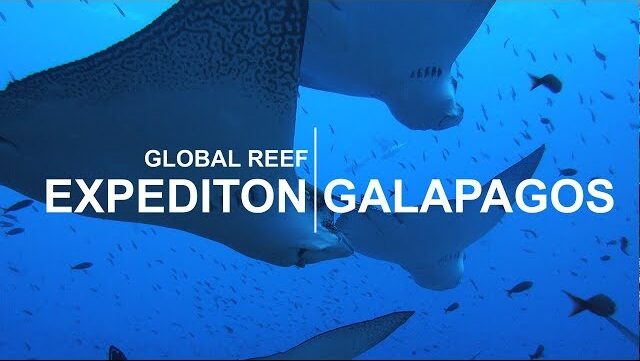
26:07
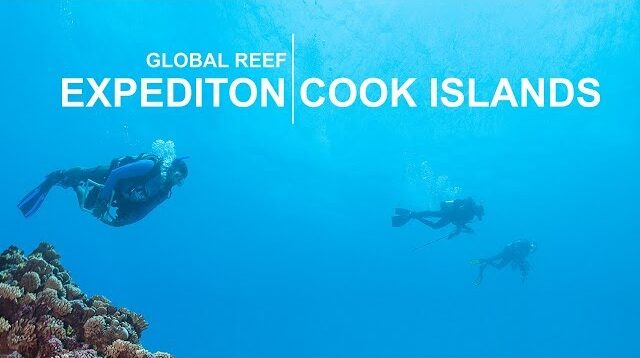
25:51
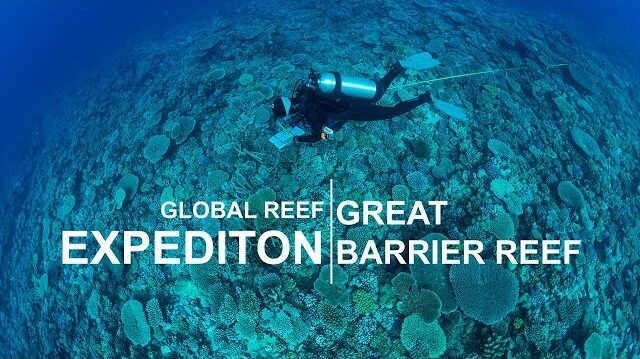
26:09
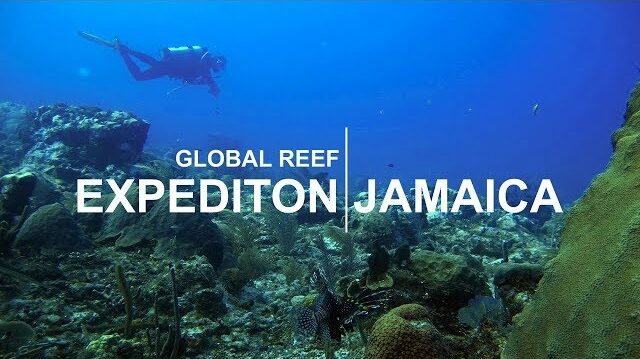
25:15
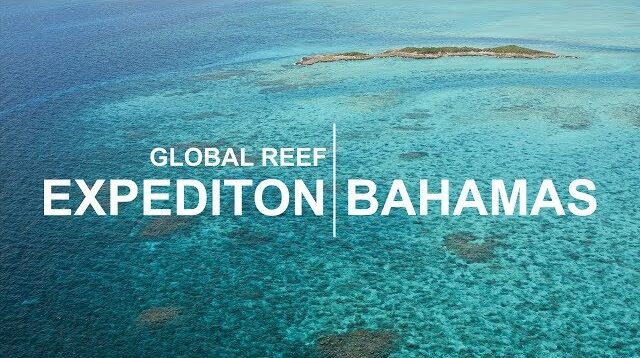
25:14
Our Living Oceans TV Series

0:31
Global Reef Expedition TV Series: Indian Ocean Episode
In this episode of The Global Reef Expedition, the scientific team aboard the “Golden Shadow” visits the Chagos Archipelago, a tropical paradise with some of the healthiest coral reefs on the planet. They come to study reefs seemingly untouched by man, but instead become witnesses to a bleaching incident that transforms the reefs right before their eyes. But before they leave, they also discover rays of hope in little sprigs of coral that fight on.
Global Reef Expedition TV Series: Galápagos Episode
Situated at the confluence of major currents, the Galapagos Islands are not tropical – in fact they are cold, reefs were only discovered here in 1975. With the help of a local guide, in this episode of The Global Reef Expedition, the Living Oceans Foundation team battles rough seas and cold water. They discover some flourishing reefs at Darwin Island, and further south, a natural laboratory to test the future of what reefs might expect in just a few decades.
Global Reef Expedition TV Series: Cook Islands Episode
The people of the Cook Islands have created one of the world’s largest marine parks, and now they’re working together to figure out what that means to a bevy of conflicting interests, from fishermen to miners. In this episode of The Global Reef Expedition, scientists aboard the “Golden Shadow” lend their expertise, exploring reefs at a far-flung island and helping the residents map their resources.
Global Reef Expedition TV Series: Great Barrier Reef Episode
In this episode of The Global Reef Expedition, the Living Oceans Foundation team settles in for a month on the GBR, the largest reef in the world. One of them is studying sharks, and in a flashback we visit French Polynesia, where sharks abound and the team films natural shark feeding behaviors for the first time ever. Back on the GBR, the scientists explore the northern Reef, until recently the healthiest part. The program concludes with new footage of the 2016 bleaching and severe die-off among these corals.
Global Reef Expedition TV Series: Jamaica Episode
Jamaican reefs, once famous for their large corals and abundant fish, were struggling to survive. Local fishermen had to work much harder to make a living and provide seafood for their families. In this episode of The Global Reef Expedition, fishermen team up with conservationists, the Jamaican government, and Living Oceans Foundation scientists to set up a fishing sanctuary, hoping to restore their endangered fishery.
Global Reef Expedition TV Series: Bahamas Episode
Voiced by a local conservation officer, this episode of The Global Reef Expedition explores one of the largest barrier reefs in the world, which stretches for nearly a thousand miles in the Caribbean Sea. Working together with local scientists and conservation workers, the Living Oceans Foundation team documents the reefs here and probes their ability to cope with the perils of climate change.
Our Living Oceans TV Series
Login to our Education Portal to watch full episodes of this series.
The Khaled bin Sultan Living Oceans Foundation launched a new TV series in collaboration with EarthxTV that reveals the hidden life beneath the oceans. Hosted by submersible pilot Erika Bergman, Our Living Oceans explores the health of our living oceans, the threats they face, and what is being done to save them through conversations with scientists, conservationists, and local leaders from around the world.
In addition to our staff and partners on the Global Reef Expedition, episodes feature H.R.H. Princess Hala bint Khaled bin Sultan, National Geographic explorer-in-residence Dr. Sylvia Earle, Dr. Ved Chirayath of the NASA Ames Research Center and many more at the front lines of ocean research, outreach, and education.
Watch More on YouTube
Discover an even broader collection of our films and educational videos on our YouTube channel. From captivating short films to in-depth documentaries, our YouTube channel provides an incredible opportunity to explore the wonders of our oceans at your convenience.
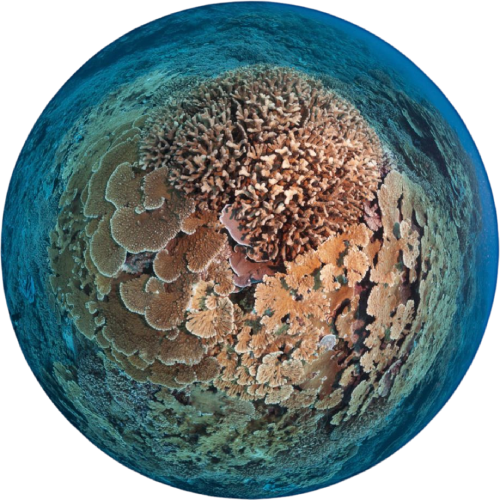
Dive Deeper
Check out our Coral Reef Ecology Curriculum!
To learn more about the topics explored in these videos, log on to our award-winning Education Portal, a free educational resource for students and teachers. There, you will find in-depth information on each of the topics covered in the videos, as well as Watch It! worksheets to accompany the films, quizzes, and access to our full Coral Reef Ecology Curriculum. Teachers can access accompanying lesson plans and worksheets on the Education Portal to get the most out of showing the videos in a classroom setting.
Stock Footage & Licensing
All Our Films Are Available for Licensing!
The Foundation has shot thousands of hours of underwater footage from locations such as French Polynesia, Tonga, the Chagos Archipelago, and The Bahamas. A selection of our HD and Ultra HD 4K+ stock footage is available for licensing through Nature Footage. Proceeds from these sales support our marine conservation initiatives.
If you’re interested in licensing any of our footage or films, please contact us.

